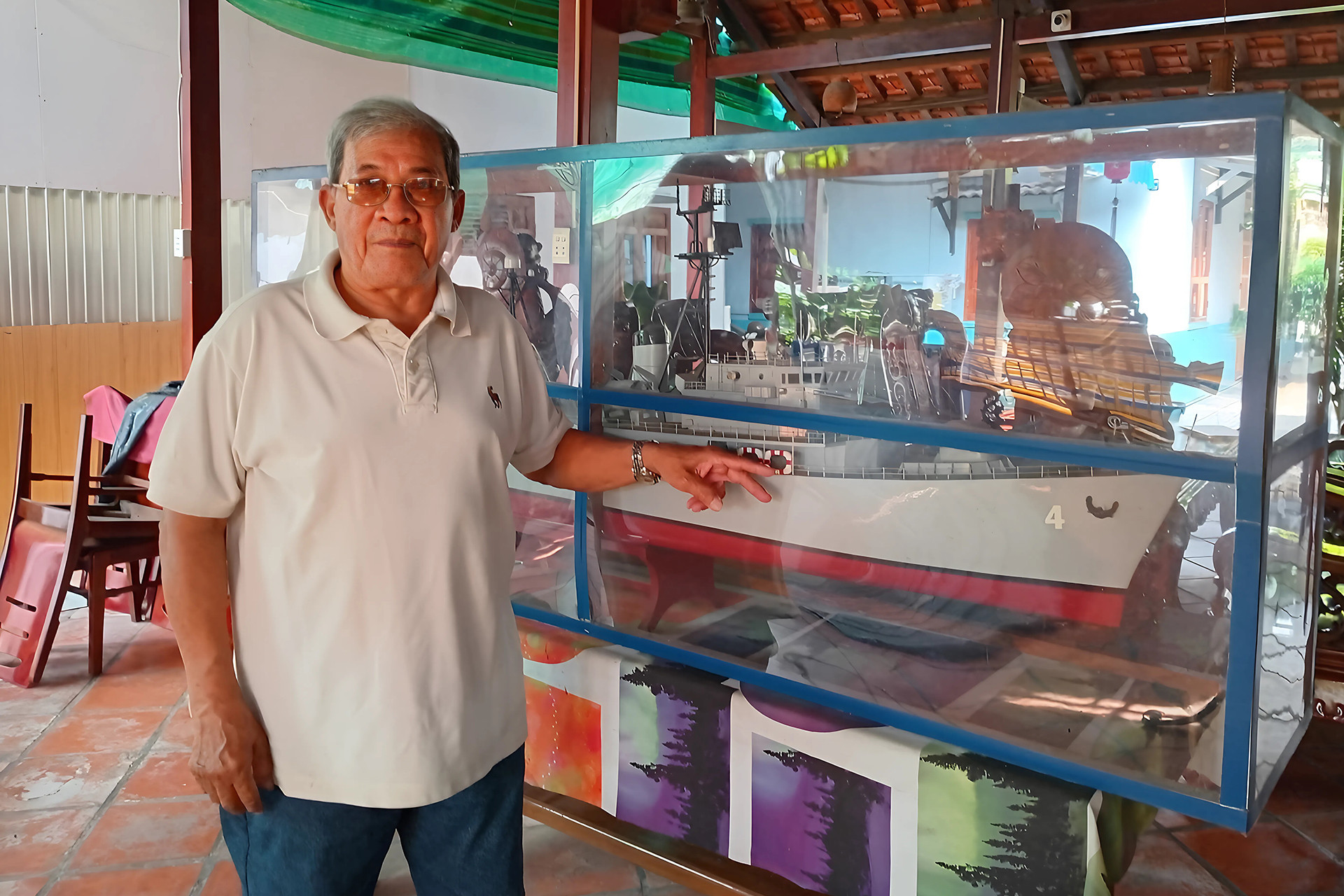
Memories of turbulent years flickered in the eyes of Lu Cong Bay, 78, once a technical officer on a Republic of Vietnam destroyer when he met us at his home in Thu Duc, HCM City.
Born in GiongTrom district in BenTre province, Bay had six brothers and two sisters. His father, a teacher, joined the resistance and contributed to seizing Ben Tre’s government in 1945. Bay’s second brother, Lu Cong Truc, and third brother, Lu Cong Thieu, also joined the resistance force against the French.
In 1949, Bay’s father was sent to Saigon by the resistance force to treat lung disease and secretly carry out activities to support the resistance cause. That was the time when Bay’s family moved to Saigon to live.
Bay recalled that in 1960, when his father was imprisoned by the Saigon regime, the family fell into hardship. His mother went into others’ service to feed the children. Bay and his remaining siblings took all the odd jobs they could, from carrying water to selling ice cream.
In 1965, Bay was conscripted. Because of his good grades, he was sent to the navy, serving as a technical officer on a destroyer. His older brother, Lu Cong Van, became a paratrooper, and two younger brothers also joined the Republic of Vietnam’s army. One of them worked as an aircraft repair technician, while the youngest joined the marines but did not see combat before peace was restored.
“Our father often advised us that if conscripted, we should take technical roles to avoid fighting directly on the frontlines,” Bay recalled.
Bay added that his third brother, Lu Cong Thieu, who was then deputy chief of staff for Long Chau Ha’s army section, once sent a letter home.
“In the letter, he didn’t blame us. He said that because of the current situation, we had to join the army ‘on the other side’ (enemy), but we had to try to be technical soldiers, not point guns at our brothers and compatriots. He also said that he trusted and loved us very much,” Bay recalled.
“And my second brother Lu Cong Truc, who was then a political commissar of an artillery battalion of the North, fighting in the fiery land of Quang Tri, always advised us like our father said," Bay said.
Staying for love and faith
Bay recalled the war’s final days, when the ‘losers’ scrambled to evacuate amid chaos and fear. “Before April 30, 1975, the warship commander told subordinates that the ship would evacuate abroad and they could choose either to stay or go abroad on the ship as they wanted,” he said.
“As a technical officer, I had to stay until the last night, handling technical preparations for departure. But before the final voyage, I chose to stay,” he added.
“I had my family, my siblings, and an aging father whom I couldn’t leave.”
Deciding to stay, Bay still felt worried. Yet deep down, he felt joy and longed to reunite with his brothers ‘on the other side’.
Reunion day
After April 30, 1975, Bay bid farewell to his father and went to Long Xuyen, An Giang province, to find his brother Lu Cong Thieu.
“I’ll never forget that moment. We hugged tightly, smiling, but tears streamed down, choking our voices,” Bay recalled.
During the first conversation between the two brothers, no one mentioned the battle, the bombs and bullets, but only recounted old stories about the days of bathing in the river and catching fish.
It was not until mid-July 1975 that Lu Cong Truc arrived in Saigon and met his three younger brothers who once served in the Republic of Vietnam’s army.
“After 20 years divided by battlefronts, our second brother didn’t scold or blame us. He said he was just glad we were alive,” he said.
With the country unified, Bay’s siblings reunited, but soon separated again because they had to undertake work after the war.
Bay operated the HQ503 ship to ferry prisoners from islands to the mainland. His brother, the aircraft technician, continued working at Tra Noc airport in Can Tho. The youngest worked as a driver for a company.
On the 13th day of the 1975 lunar year, all of them met to celebrate the death anniversary of their mother.
Ho Van